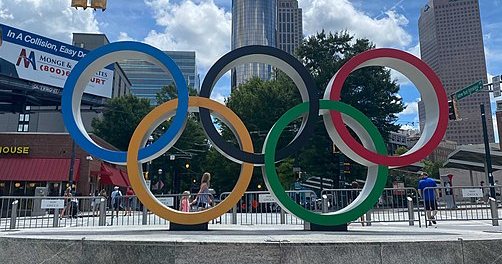The International Olympic Committee has unveiled a new framework advising on transgender and intersex athletes’ participation in sport. While the document is not legally binding, it provides federations with guidelines to help them implement more inclusive regulations within their sport.
The 10-point document entitled ‘Framework on Fairness, Inclusion and Non-discrimination on the basis of gender identity and sex variations’, was created over the course of two years and replaces the current guidelines which were published in 2015. The committee consulted over 250 athletes and other stakeholders to formulate the framework, and it will begin its rollout after the 2022 Beijing Winter Olympics.
A key update from 2015 is that testosterone levels should no longer be make-or-break for athletes who are looking to compete. Previously, transgender women had to prove their testosterone count was below 10 nmol/L for at least twelve months before their first competition.
IOC medical director Richard Budgett emphasised that “You don’t need to use testosterone at all. But this is guidance, it’s not an absolute rule.”
The International Olympic Committee also states within the document that athletes should not be pressurised to undergo “medically unnecessary procedures or treatment to meet eligibility criteria,” and “invasive physical examinations” should not be used to determine anyone’s sex.
“We really want to make sure that athletes are not pressured or coerced into making a harmful decision about their bodies,” said IOC’s head of human rights, Magali Martowicz.
Furthermore, athletes should not be assumed to have an unfair advantage because of their gender identity, and significant proof through “robust and peer-reviewed research” should be required. Athletes should also be able to contest restrictions through “internal mediation mechanisms” or through a quasi-judicial process.
Great to see the @Olympics moving to a system which does not presume an advantage for trans athletes.
Also a big ?? for suggesting the removal of arbitrary rules which dictate limits on trans women’s hormone levels and the time that has passed since beginning hormone treatment. https://t.co/2GH9QnkijF
— Toryn Caitriona Glavin (@torynglavin) November 17, 2021
GLAAD’s Associate Director Of Transgender Representation, Alex Schmider, welcomed this new framework, calling is “a victory for all athletes and fans.”
“Sports are for everyone, and fairness in sports means inclusion, belonging and safety for all who want to participate, including transgender, intersex and nonbinary athletes,” he continued.
This new framework comes after Laurel Hubbard became the first transgender athlete to compete at the Olympic Games earlier this year, and at a time when transgender participation in sport is a highly debated topic. Although the principles published by the International Olympic Committee are not legally binding, they provide hope for the trans community that there will be a more inclusive playing environment in years to come.
© 2021 GCN (Gay Community News). All rights reserved.
Support GCN
GCN is a free, vital resource for Ireland’s LGBTQ+ community since 1988.
GCN is a trading name of National LGBT Federation CLG, a registered charity - Charity Number: 20034580.
GCN relies on the generous support of the community and allies to sustain the crucial work that we do. Producing GCN is costly, and, in an industry which has been hugely impacted by rising costs, we need your support to help sustain and grow this vital resource.
Supporting GCN for as little as €1.99 per month will help us continue our work as Ireland’s free, independent LGBTQ+ media.
